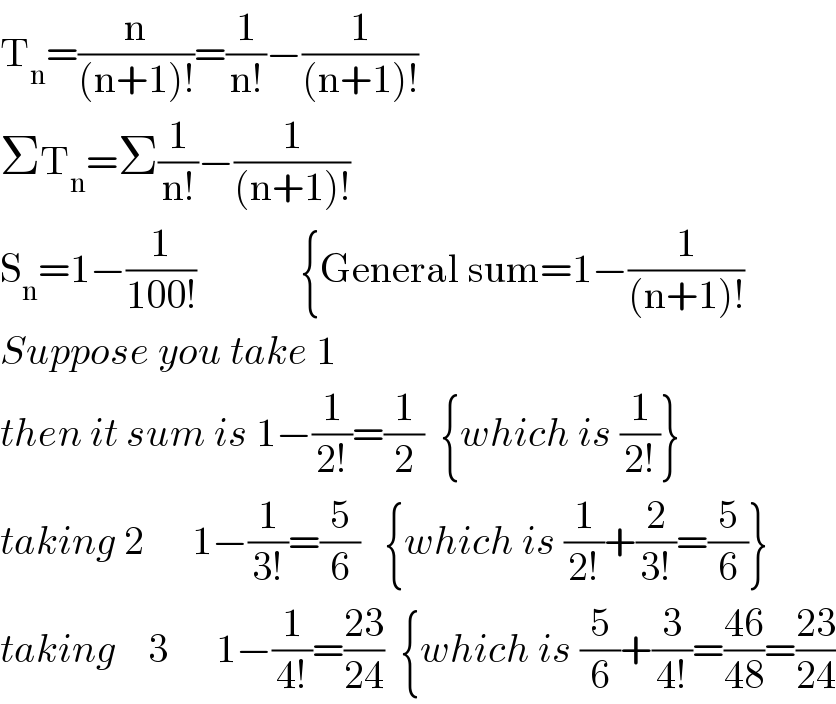
Question and Answers Forum
Question Number 100304 by Algoritm last updated on 26/Jun/20

Commented by PRITHWISH SEN 2 last updated on 26/Jun/20

Commented by Dwaipayan Shikari last updated on 26/Jun/20

Commented by PRITHWISH SEN 2 last updated on 26/Jun/20

